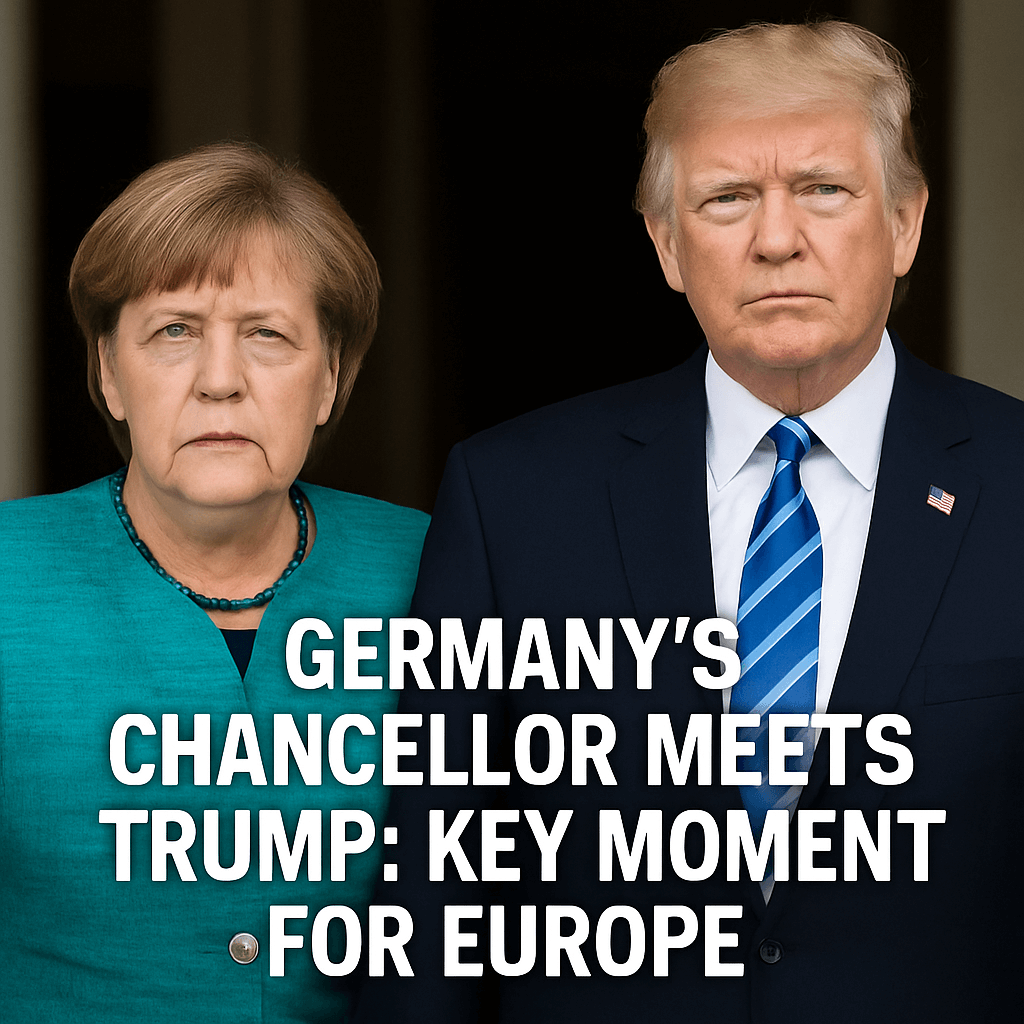Germany’s Chancellor Meets Trump: Key Moment for Europe

German Chancellor Friedrich Merz is scheduled to meet with US President Donald Trump on Thursday, an encounter deemed vital for Europe’s geopolitical landscape. Amid rising tensions surrounding the ongoing conflict in Ukraine and the looming threat of a trade war, this meeting holds significance not just for bilateral relations but also for the broader stability of the transatlantic alliance.
A Staunch Advocate for Transatlantic Ties
Merz, now one month into his presidency, embodies a strong transatlanticist outlook as he seeks to fortify ties with the United States—viewed by many in Germany as a key ally since the post-war period. At 69, he aims to balance Germany’s national interests with strong international relationships, even as he faces a US administration known for its “America First” policies.
Defense Spending and NATO Commitments
In an effort to appease Trump, Merz has pledged to significantly increase Germany’s NATO defense expenditures, aiming for a target of 3.5% of GDP. This commitment includes additional allocations of 1.5% specifically for security-related infrastructure, underscoring Germany’s responsiveness to NATO’s long-standing defense budget guidelines.
Experts suggest that Merz’s expected increase in defense spending reflects a broader recognition of changing geopolitical dynamics. “Merz’s commitment to raising defense expenditures aligns with NATO’s pressures on member states to meet their financial obligations, which is integral to collective security efforts against potential threats from Russia,” argues Dr. Hans Mayer, a geopolitical analyst at the Berlin Institute for Global Affairs.
Trade Under Tension
Trump’s administration has been characterized by unpredictable shifts in trade policy, most notably his threats of imposing steep tariffs on European goods. Merz’s approach to these negotiations emphasizes a position of strength. He asserts that Germany, as Europe’s largest economy, should engage self-confidently with the US, stating, “we’re not supplicants.” This proactive stance is particularly critical given the economic interdependencies between the US and Europe.
Both leaders share professional backgrounds in business, allowing for potential synergies in discussions related to trade. Merz’s extensive experience on numerous corporate boards could facilitate negotiations on trade tariffs and agreements as both leaders seek to avoid an escalation into a trade war.
Political Dynamics Ahead of the Summit
This meeting comes in the lead-up to the G7 summit scheduled in Canada (June 15-17) and a NATO meeting later in the month. These platforms will further shape discussions on transatlantic security and economic strategies. Analysts are closely monitoring Trump’s recent comments expressing frustration with Russian President Vladimir Putin, which could provide Merz leverage in urging Trump to adopt firmer stances against Russian aggression, including potential new sanctions.
Domestic Challenges and External Influences
One contentious issue looming over the meeting is the growing support Trump and members of his administration have expressed for Germany’s far-right Alternative for Germany (AfD) party. Recent endorsement remarks from high-profile politicians and even social media interactions have worried many in Berlin, especially given the AfD’s designation by Germany’s domestic intelligence service as a right-wing extremist group.
Merz has publicly expressed his discontent regarding American political figures who weigh in on Germany’s domestic issues, urging the US administration to remain focused on international affairs rather than domestic politics. German Foreign Minister Johann Wadephul also criticized Trump, noting that directives, which seem to undermine the foundations of democratic coexistence in Germany, are counterproductive.
Looking Ahead: The Importance of Personal Diplomacy
Despite significant geopolitical tensions, both leaders appear to have established a rapport based on prior phone conversations. Merz’s keen sense of humor during a recent interview, where he jested about Trump’s tendency to use the word “great,” could serve as a diplomatic tool to foster a constructive dialogue. As they prepare for their first face-to-face encounter, Merz remains optimistic about the potential outcomes of their discussions, stating, “Our alliance with America was, is, and remains of paramount importance for the security, freedom, and prosperity of Europe.”
Conclusion
The forthcoming meeting between Chancellor Merz and President Trump may serve as a critical checkpoint for the future of European relations and NATO dynamics. Given the convergence of various pressing issues—ranging from defense spending commitments to trade tariffs and evolving political affiliations—the leaders’ ability to engage in meaningful dialogue will likely influence the strategic landscape in Europe.